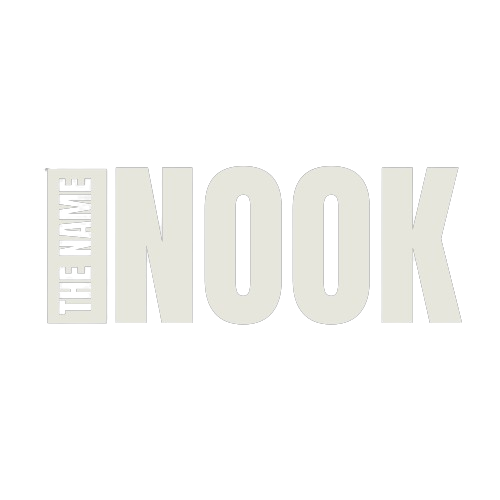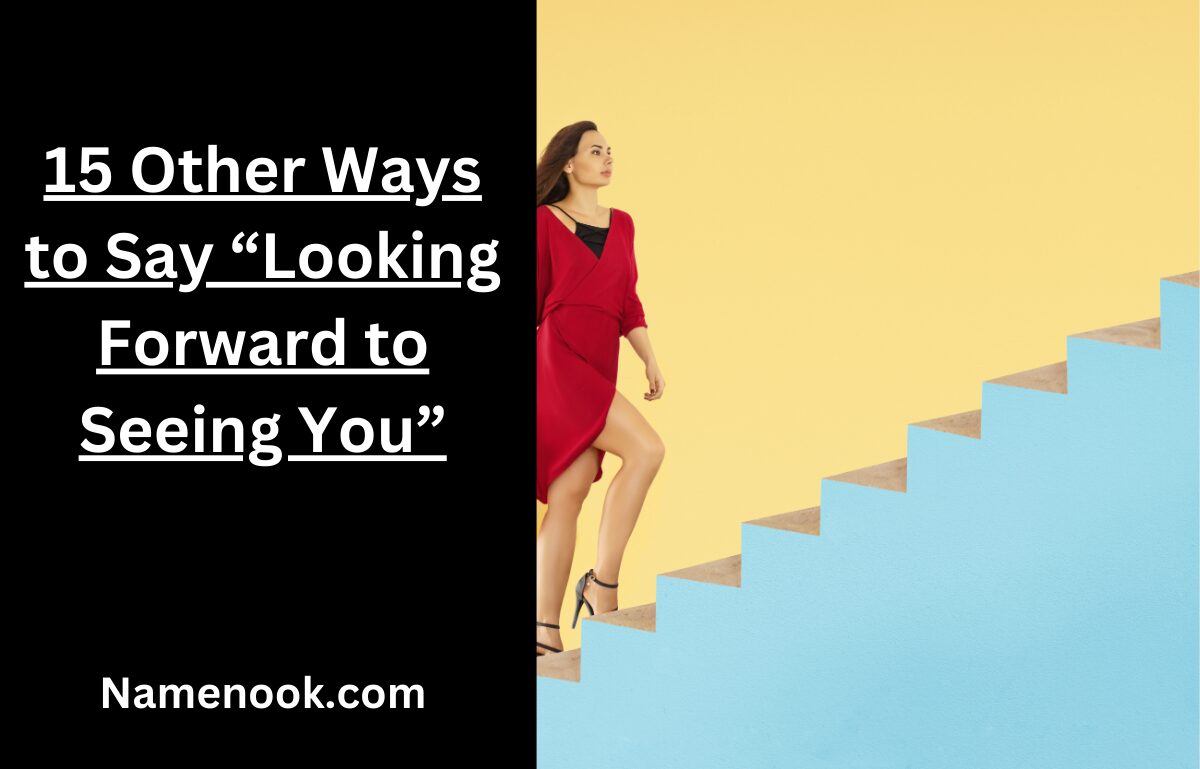Introduction
The phrase “Looking forward to seeing you” is commonly used to express excitement and anticipation about a future meeting. Whether you’re meeting a friend, colleague, client, or family member, this phrase is a polite and enthusiastic way to convey your eagerness.
However, over time, it can become repetitive, especially if you find yourself using it frequently in emails or messages, both personally and professionally. Fortunately, there are many alternative ways to express the same sentiment with a bit of variety and creativity.
In this article, we’ll explore 15 different ways to say “Looking forward to seeing you,” diving into their meanings, appropriate usage, and when to use them.
What Does “Looking Forward to Seeing You” Mean?
“Looking forward to seeing you” expresses excitement or eagerness about a future meeting or event. It’s a polite and positive way to indicate that you’re anticipating the chance to meet or spend time with someone.
For example:
- Personal: “I’m looking forward to seeing you at the reunion next weekend!”
- Professional: “I’m looking forward to seeing you at the quarterly meeting tomorrow.”
In both of these cases, the phrase communicates excitement, but the context—personal or professional—shapes the tone of the expression. It’s a versatile phrase, usable in both formal and informal situations.
The Importance of Variety in Language Use
While “Looking forward to seeing you” is a great go-to phrase, overusing it can make your communication sound repetitive and formulaic. To keep things fresh and engaging, it’s helpful to have a variety of expressions at your disposal.
Whether you’re drafting formal emails to clients or sending informal texts to friends, using different alternatives will keep your messages interesting while still conveying enthusiasm.
15 Alternatives to “Looking Forward to Seeing You”
Here are 15 alternative ways to express the same sentiment, along with examples and explanations for when to use them:
- Can’t Wait to See You
This casual phrase expresses excitement and eagerness, often used in informal contexts.
- Example: “Can’t wait to see you at the concert this weekend!”
- Tone: Informal, enthusiastic.
- When to use: Casual conversations with friends or family.
- I’m Eager to See You
A slightly more formal version, perfect for professional settings but still conveys excitement.
- Example: “I’m eager to see you at the team meeting tomorrow.”
- Tone: Semi-formal, polite.
- When to use: In work emails or formal social gatherings.
- Excited to See You
This one is versatile, usable in both casual and professional settings to express enthusiasm.
- Example: “I’m excited to see you at the wedding next month!”
- Tone: Casual, yet adaptable to formal settings.
- When to use: Ideal for both personal and professional occasions.
- I’m Looking Forward to Catching Up
Perfect for situations where the meeting is meant for conversation, especially after not seeing someone for a while.
- Example: “Looking forward to catching up with you over lunch next week.”
- Tone: Friendly and casual.
- When to use: Personal meetings, especially with old friends or family.
- I’m Thrilled to See You
A more enthusiastic expression, ideal for occasions you’re really excited about.
- Example: “I’m thrilled to see you at the graduation ceremony next month!”
- Tone: Very enthusiastic and informal.
- When to use: Family gatherings or special events you’re particularly excited about.
- I’m Keen to See You
A polite, more reserved way of expressing anticipation, common in British English but understood globally.
- Example: “I’m keen to see you at the conference next week.”
- Tone: Formal or semi-formal, polite.
- When to use: Professional or polite settings, especially in British culture.
- Can’t Wait to Reconnect
Great for situations where you haven’t seen someone in a while and are excited to catch up.
- Example: “Can’t wait to reconnect with you at the reunion this weekend!”
- Tone: Casual and enthusiastic.
- When to use: Reunions, old friends, or long-distance relationships.
- I’m Anticipating Our Meeting
A more formal alternative, ideal for business and academic contexts.
- Example: “I’m anticipating our meeting on Wednesday to discuss the proposal.”
- Tone: Formal, professional.
- When to use: Meetings, conferences, or seminars.
These alternatives offer a range of ways to express excitement about seeing someone, allowing you to adjust the tone and level of formality depending on your relationship with the person and the context of your communication. Keep these phrases in mind to add variety and personality to your messages, and you’ll never feel stuck with the same old phrases again!
9. I’m Excited About Our Upcoming Meeting
Excited About Our Upcoming Meeting
This alternative emphasizes the upcoming nature of the meeting, making it a great fit for formal contexts.
- Example: “I’m excited about our upcoming meeting with the client next week.”
- Tone: Formal and professional.
- When to use: Business meetings or professional events, especially in work-related emails.
This phrase conveys enthusiasm about the event while maintaining a professional tone, perfect for corporate communication.
Looking Forward to Spending Time with You
This is an excellent option when the focus is not just on the meeting itself but also on the quality time you’ll share with the person.
- Example: “Looking forward to spending time with you at the cabin this weekend.”
- Tone: Casual and friendly.
- When to use: Family gatherings, vacations, or any event focused on spending quality time together.
This phrase works well when the meeting is about personal connections and enjoying each other’s company.
I’m Eagerly Anticipating Our Time Together
A more formal yet heartfelt way of expressing excitement about meeting someone.
- Example: “I’m eagerly anticipating our time together at the gala next month.”
- Tone: Formal and respectful.
- When to use: Professional events, important gatherings, or formal social events.
The phrase “eagerly anticipating” conveys a high level of respect and formality, making it ideal for business dinners, networking events, or any other formal occasions.
Can’t Wait to Catch Up
This variation adds a personal touch, making it perfect for informal settings where you’re excited to chat or reconnect.
- Example: “Can’t wait to catch up with you over coffee tomorrow!”
- Tone: Informal and friendly.
- When to use: Casual settings with friends or family.
It emphasizes the excitement of reconnecting and sharing experiences, making it perfect for close relationships.
Looking Forward to Our Conversation
A great phrase when you want to highlight the dialogue aspect of the meeting or event.
- Example: “Looking forward to our conversation about the project tomorrow.”
- Tone: Formal or semi-formal, depending on the context.
- When to use: Professional meetings, interviews, or any situation where the focus is on the conversation.
This version shifts the focus from the meeting itself to the content of the encounter, which is often important in professional or academic settings.
Excited to Meet You
A fitting phrase when you’re meeting someone for the first time or after a long period.
- Example: “Excited to meet you at the interview tomorrow!”
- Tone: Casual to formal, depending on context.
- When to use: New meetings, such as job interviews, first-time meetings, or social interactions.
This phrase highlights the excitement of meeting someone new or rekindling an old relationship.
I’m Eager to Meet You
Similar to “I’m excited to meet you,” this phrase is formal yet warm, expressing anticipation for the event or meeting.
- Example: “I’m eager to meet you at the seminar this afternoon.”
- Tone: Formal, polite, and respectful.
- When to use: Professional or formal settings, such as job interviews, conferences, or academic events.
It strikes a balance between enthusiasm and professionalism, making it ideal for business or academic contexts.
Summary of Key Points:
- Informal Alternatives: Phrases like “Can’t wait to see you,” “Can’t wait to reconnect,” and “Looking forward to catching up” work best in friendly or casual settings, especially when reconnecting after some time apart.
- Formal Alternatives: Phrases like “I’m anticipating our meeting,” “I’m excited about our upcoming meeting,” and “I’m eager to meet you” are great for professional contexts, such as business meetings or client discussions.
- Polite and Respectful Tone: Alternatives like “I’m keen to see you” and “I’m eagerly anticipating our time together” convey formality and are ideal for formal events, professional gatherings, or polite social situations.
- Enthusiastic Expressions: Phrases such as “I’m thrilled to see you,” “Excited to meet you,” and “I’m excited to see you” convey a high level of excitement and enthusiasm, perfect for family events, weddings, and personal get-togethers.
By using these varied alternatives, you can add dynamism to your communication and tailor your expressions of anticipation to suit both the context and the relationship you have with the person.
Conclusion
In conclusion, “Looking forward to seeing you” is a powerful and flexible phrase used to express excitement and anticipation about a future meeting or event. However, incorporating variety into your language helps to avoid repetition and keeps your communication engaging.
Alternatives like “Can’t wait to see you,” “Excited to meet you,” or “I’m eager to see you” allow you to adapt your language to different settings, whether professional or personal.
From formal business emails to casual conversations with friends, these alternatives add nuance, clarity, and personality to your communication.
By choosing the right expression, you can make your language more dynamic and create stronger connections with your audience, colleagues, friends, or loved ones. So next time you feel like saying “Looking forward to seeing you,” remember that you have many other options to express the same sentiment in a way that perfectly fits the situation!


1 thought on “15 Best Other Ways to Say “Looking Forward to Seeing You””